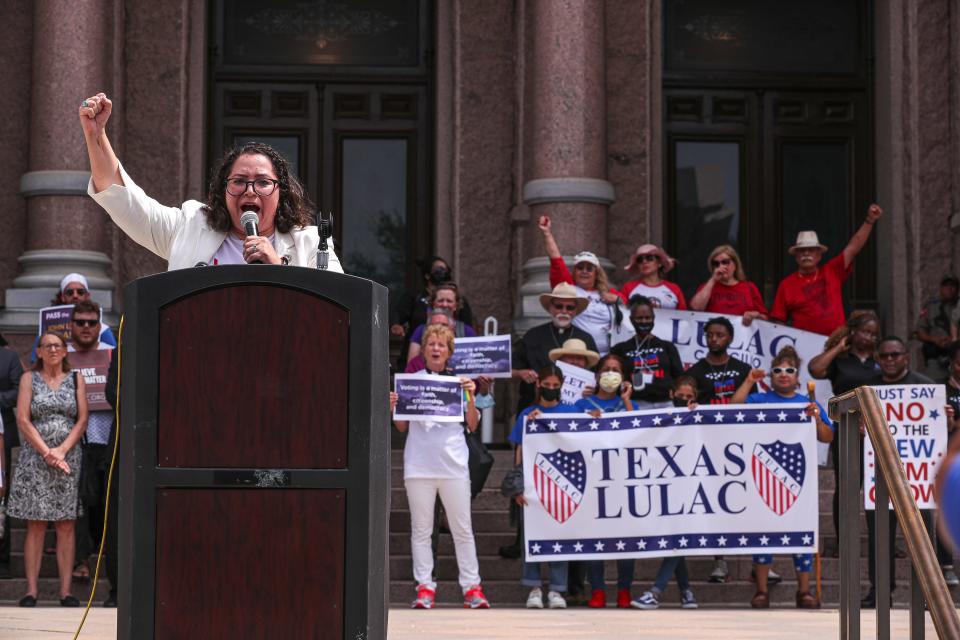Federal judge strikes down Texas voter residency law
A federal judge has struck down a Texas law that imposed new residency requirements for voters, siding with two Latino civil and voting rights groups who say the law is discriminatory.
U.S. District Judge Lee Yeakel of Austin wrote in his order Tuesday that the law in question is “unconstitutionally vague and overbroad, barring conduct that is squarely protected by the First Amendment.”
The law in question required people who register to vote using a post office box to provide proof of a home address to ensure that they vote only in eligible elections. It also prohibited people from establishing a residence “for the purpose of influencing the outcome of a certain election.”
More:Texas Latino groups sue to block GOP voter residency bill

Texas Republicans passed Senate Bill 1111 in 2021 as part of an effort to tighten voting requirements and strengthen election fraud laws. The law was set to take effect Sept. 1.
After the measure was signed into law, the Texas chapter of the League of United Latin American Citizens, or LULAC, and Voto Latino, a nonprofit that seeks to mobilize voters, sued to overturn it, arguing that it would create unnecessary barriers to registration and voting.
In their original complaint, they said SB 1111 “targets young and minority voters to silence their voices and ensure that their collective voting strength does not translate to political power or accountability.”
In Tuesday’s summary judgment, Yeakel found that the law creates unique burdens for many college students who live on campus part-time, as it states a person may not designate a residence unless they inhabit the place at the time of filing and intend to remain there.
“The part-time and off-campus college student are undeniably disenfranchised because they are unable to register to vote both where they have moved and where they have moved from,” he wrote. “The burden imposed is 'severe,' if not insurmountable. Such an insurmountable burden is not easily overcome.”
Although the state argued that the law's purpose of the law is to ensure that Texans only have one residence when they register to vote, Yeakel said in practice the law would “leave some Texans without any residence.”
Leaders with LULAC and Voto Latino celebrated the decision.
“Texas LULAC is elated that the federal court saw through this thinly veiled voter suppression effort,” Rodolfo Rosales Jr., Texas LULAC state director, said in a statement. “Their plan is not working, and LULAC vows to see them in court as many times as we need to beat back their illegal legislative attacks.”
María Teresa Kumar, president and chief executive officer of Voto Latino, said she was thrilled by the court’s decision, but cautioned that more battles are ahead on voting rights.
“Gratified as we are by this decision, it’s essential to remember that SB 1111 is just one part of a right-wing war on voting rights in Texas and nationwide,” she said in a statement. “We will continue our fight to ensure every voter in Texas and across the country is empowered to exercise their constitutionally guaranteed right to cast their ballots and participate in our democracy.”
This article originally appeared on Austin American-Statesman: Federal judge strikes down Texas voter residency law

